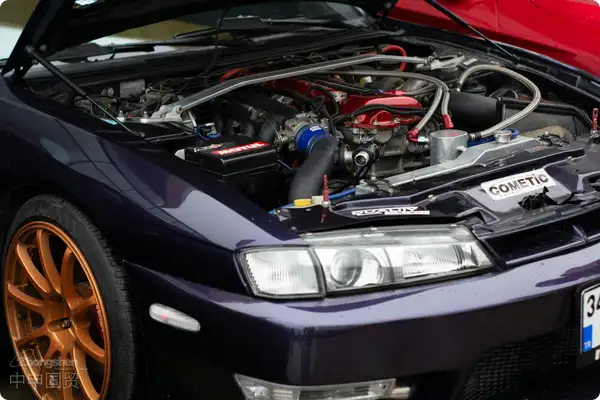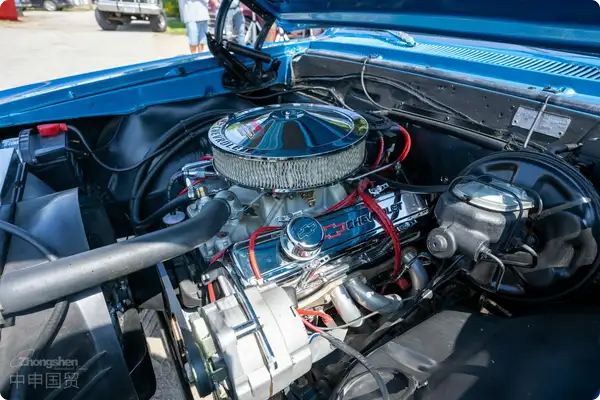- Shanghai Zhongshen International Trade Co., Ltd. - Two decades of trade agency expertise.
- Service Hotline: 139 1787 2118

Automotive partsImport RepresentationRisk avoidance strategies: Sharing twenty years of industry experience
In the context of global supply chains, automotive parts imports have become a crucial link in domestic automobile manufacturing and aftermarket services. However, the import process involves complex regulations, logistics, quality, and trade barriers, where any oversight can lead to significant losses. As a professional practitioner with 20 yearsforeign tradeof agency experience, this article will analyze the core risks of automotive parts imports from a practical perspective and propose systematic avoidance strategies to help enterprises achieve efficient and compliant cross-border procurement.
I. Compliance risks: Dynamic changes in policies and standards
Risk points:
Internationally - recognized Safety StandardsDifferences in import country regulations: Different countries have varying certification requirements for automotive parts (such as EU e-mark certification, US DOT certification, China CCC certification). Failure to obtain compliant qualifications may result in cargo return or destruction.
Regional Mandatory CertificationsTariffs and trade barriers: Policy changes such as anti-dumping duties, rules of origin, and environmental restrictions (e.g., REACH regulations) may significantly increase costs.
Cultural and Religious NormsCustoms declaration errors: Incorrect commodity code (HS Code) classification or declared value discrepancies may trigger customs audits and fines.
Avoidance strategies:
- Preliminary due diligence:
① Clarify target market access requirements and commission third-party agencies for compliance pre-review;
② Establish a dynamic policy monitoring mechanism, paying attention to WTO trade alerts and industry notices. - Professional document support:
① Strictly review documents provided by suppliers,It is recommended to verify through the following methods:such as test reports and authorization letters;
② Adopt the dual-code verification method (self-check by the enterprise + agent review) to reduce HS classification risks.
II. Quality risks: Supplier management and product acceptance
Risk points:
Internationally - recognized Safety StandardsSupplier qualification defectsSome overseas small and medium manufacturers may provide false certifications or low-quality products.
Regional Mandatory CertificationsSpecification parameters do not matchAccessories and vehicle model compatibility errors (such as OEM number confusion) result in unusability.
Cultural and Religious NormsHidden quality issuesMaterial defects, substandard craftsmanship and other issues are exposed after transportation, leading to after-sales disputes.
Avoidance strategies:
- Supplier tiered management:
① Prioritize cooperation with factories certified by IATF 16949;
② Evaluate supplier reliability through on-site factory inspections and historical order tracking. - Full-process quality inspection control:
① Clearly define quality terms in contracts (such as AQL sampling standards, return and replacement conditions);
② Arrange third-party agencies for pre-shipment inspection (PSI), focusing on key parameters (such as dimensional accuracy, material composition).
Logistics risks: Balancing timeliness and cargo damage
Risk points:
Internationally - recognized Safety Standardstransportation delays:Maritime TransportationPort congestion and route adjustments lead to delivery delays, affecting production plans.
Regional Mandatory CertificationsCargo damage and improper packagingPrecision accessories (such as sensors, ECUs) are susceptible to temperature, humidity, and vibration during transportation.
Cultural and Religious NormsCustoms clearance delaysMissing documents or quarantine failures result in cargo detention and high warehouse rental fees.
Avoidance strategies:
- Optimize the Logistics Plan:
① Choose a combination of sea, land, and air transportation based on cargo value and urgency (e.g., high-value accessoriesAir Transportation+ general cargo sea freight);
② Use moisture-proof and shock-resistant packaging, and equip precision components with GPS tracking and temperature control devices. - Emergency plan reserves:
① Plan backup ports and alternative transportation routes in advance;
② Purchase All Risks insurance with additional delay insurance to transfer force majeure losses.
Exchange rate and payment risks: Fund security control
Risk points:
Internationally - recognized Safety StandardsExchange Rate FluctuationsLong-cycle orders suffer profit shrinkage due to exchange rate fluctuations.
Regional Mandatory CertificationsPayment traps:L/CTrade fraud such as soft clauses and advance payment scams.
Avoidance strategies:
- Financial Instrument Hedging:
① Lock in exchange rate costs through forward exchange settlements and option contracts;
② Use multi-currency accounts to diversify risks. - Payment security safeguards:
① Priority use of LC letters of credit, strictly review the issuing banks qualifications and terms;
② Require unfamiliar suppliers to adopt phased payments of deposit + balance payment against copy of bill of lading.
Intellectual property risks: Brand and patent disputes
Risk points:
Internationally - recognized Safety StandardsTrademark infringement: Unauthorized import of branded components (e.g., LOGOs, patented designs) may face legal action.
Regional Mandatory CertificationsTechnical Barriers: Some countries impose restrictions on core components (e.g.,New energythree-electric systems) withimport and export.
Avoidance strategies:
- legal pre-shipment review requirements.:
① Engage IP lawyers to verify component patent status;
② Require suppliers to provide complete brand authorization chain documentation. - Contractual risk transfer:
Include explicit liability attribution clauses in agency agreements, making suppliers bear infringement consequences.
Conclusion: The value of professional agency
The complexity of auto parts imports demands risk-preemptive thinking. Recommend partnering with specialized agents possessing:
- Customs clearance networks covering major automotive manufacturing countries;
- Technical teams proficient in SAE, ISO and other industry standards;
- Risk control systems tracking global supply chain fluctuations in real-time.
Through systematic risk management, enterprises can not only reduce loss probability but transform import agency into a core supply chain advantage.
Authors Introduction: 20-year trade agency veteran, leading over 5,000 auto parts import projects, familiar with operational rules in EU/US, Japan/Korea, and Southeast Asia markets.
Related Recommendations
? 2025. All Rights Reserved. Shanghai ICP No. 2023007705-2  PSB Record: Shanghai No.31011502009912
PSB Record: Shanghai No.31011502009912








